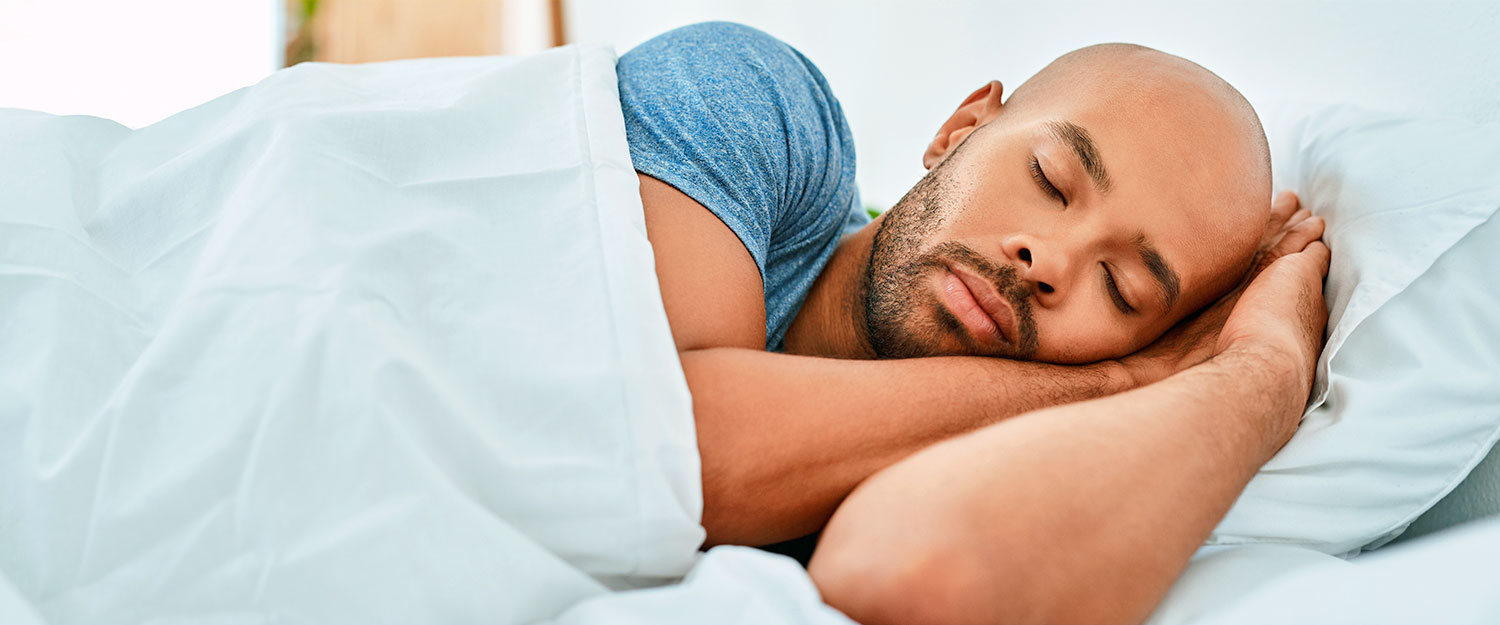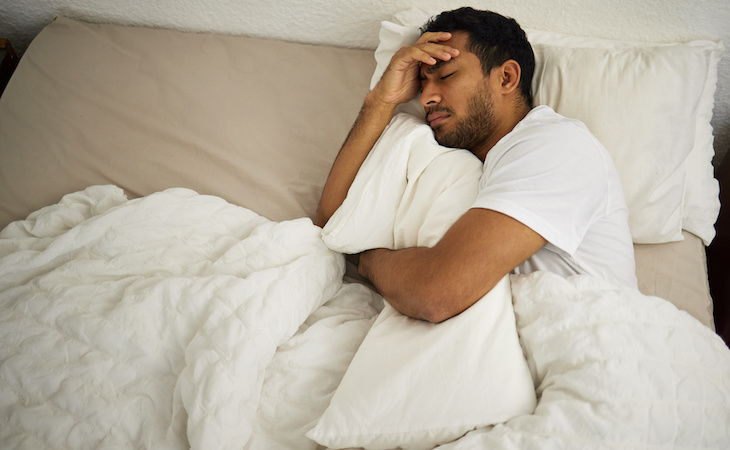Effective Therapy Solutions for Taking Care Of Rest Disorders and Enhancing Relaxing Sleep
In the world of medical care, the management of sleep conditions and the quest for peaceful rest are crucial parts of total health. As we browse the intricate landscape of rest problems and seek to improve our sleep experience, a deeper understanding of these therapy remedies may hold the trick to opening an extra relaxing and meeting restorative journey.
Cognitive Behavioral Therapy for Sleeping Disorders (CBT-I)
Cognitive Behavior Therapy for Sleeplessness (CBT-I) is an organized, evidence-based treatment method that concentrates on addressing the hidden factors contributing to sleep disturbances. This kind of treatment intends to modify habits and ideas that aggravate sleep problems, ultimately promoting healthy sleep patterns. CBT-I commonly entails several crucial parts, consisting of cognitive therapy, sleep limitation, stimulus control, and rest hygiene education.
Cognitive therapy aids people determine and change negative idea patterns and beliefs about sleep that may be preventing their ability to drop or remain asleep. Rest restriction entails limiting the quantity of time spent in bed to match the individual's actual sleep period, thereby raising rest effectiveness (insomnia therapy). Stimulus control methods assist develop a solid organization between the bed and sleep by urging people to visit bed just when drowsy and to prevent engaging in stimulating tasks in bed
In addition, rest health education and learning concentrates on establishing healthy and balanced sleep habits, such as keeping a consistent rest routine, creating a relaxing going to bed regimen, and optimizing the rest environment. By dealing with these aspects thoroughly, CBT-I offers an efficient non-pharmacological intervention for managing sleep problems and enhancing overall rest quality.
Rest Hygiene Practices
Having developed the foundation of cognitive restructuring and behavioral modifications in addressing sleeplessness through Cognitive Behavioral Treatment for Sleeping Disorders (CBT-I), the emphasis now moves towards checking out important Rest Hygiene Practices for preserving ideal sleep high quality and overall wellness.
Rest hygiene methods encompass a variety of routines and ecological elements that can dramatically influence one's capacity to go to sleep and stay asleep throughout the evening. Regular sleep and wake times, producing a relaxing bedtime regimen, and maximizing the sleep atmosphere by keeping it dark, peaceful, and cool are crucial elements of excellent rest hygiene. Restricting exposure to displays before going to bed, avoiding stimulants like caffeine near bedtime, and taking part in regular exercise throughout the day can additionally advertise far better sleep high quality.
Furthermore, practicing leisure strategies such as deep breathing workouts or reflection before bed can assist soothe the mind and prepare the body for sleep. By incorporating these sleep hygiene practices into one's everyday routine, individuals can develop a healthy and balanced sleep pattern that supports peaceful sleep and overall health.
Leisure Strategies and Mindfulness
Carrying out relaxation techniques and mindfulness techniques can play an essential function in fostering a feeling of tranquility and advertising top quality sleep. sleep therapy. These methods aim to quiet the mind, lower stress and anxiety, and develop an optimal environment for relaxed rest. One commonly exercised technique is deep breathing exercises, where individuals concentrate on sluggish, deep breaths to jimmy kimmel narcolepsy unwind the mind and body. Dynamic muscle relaxation entails tensing and after that releasing each muscle team, advertising physical relaxation. Furthermore, led imagery can assist move individuals to a serene area in their minds, assisting in stress decrease and enhancing rest quality.
Mindfulness practices, such as meditation and yoga exercise, are likewise reliable in promoting leisure and enhancing sleep. Mindfulness encourages individuals to remain present in the moment, letting go of stress over the past or future. By incorporating these methods right into a bedtime routine, people can signal to their bodies that it is time to loosen up and prepare for sleep. On the whole, incorporating relaxation strategies and mindfulness practices can substantially add to managing sleep problems and boosting overall rest quality.

Medicine Options for Rest Disorders
After checking out leisure strategies and mindfulness techniques as non-pharmacological interventions for improving sleep quality, it is necessary to take into consideration medication alternatives for people with sleep conditions. In instances where lifestyle modifications and therapy do not offer adequate alleviation, medication can be a useful device in managing sleep disruptions.
Commonly recommended medicines for rest problems include benzodiazepines, non-benzodiazepine hypnotics, antidepressants, and melatonin receptor agonists. Benzodiazepines, such as diazepam, are sedatives that can assist generate rest, yet they are typically recommended for short-term use due to the risk of dependence. Non-benzodiazepine hypnotics like zolpidem are also made use of to deal with sleep problems and have a reduced threat of dependence compared to benzodiazepines. Antidepressants, such as trazodone, can be advantageous for individuals with co-occurring anxiety and sleep disruptions. Melatonin receptor agonists, like ramelteon, target the body's natural sleep-wake cycle and can be valuable for managing rest patterns.
It is vital for people to speak with a doctor to identify one of the most suitable drug alternative based on their particular sleep condition and case history.
Light Treatment for Circadian Rhythm Guideline
Light therapy, likewise understood as phototherapy, is a non-invasive therapy approach made use of to manage circadian rhythms and enhance sleep-wake cycles. This therapy involves direct exposure to bright light that mimics natural sunshine, which helps to reset the body's inner clock. By exposing people to particular wavelengths of light, commonly in the early morning or evening depending on the wanted impact, light treatment can successfully change the body clock to promote wakefulness during the day and improve restful rest during the night.
Research study has revealed that light treatment can be especially beneficial for individuals with body clock problems, such as delayed rest phase syndrome or jet lag. It can additionally be valuable for those experiencing seasonal look at these guys depression (SAD), a type of depression that usually occurs during the cold weather when all-natural light exposure is minimized. Light treatment is typically well-tolerated and can be made use of together with other treatment approaches for rest disorders to enhance results and enhance overall rest top quality.
Final Thought
In intrinsic sleep disorders verdict, reliable treatment options for taking care of rest disorders and boosting relaxing sleep consist of Cognitive Behavior modification for Sleep Problems (CBT-I), sleep health practices, relaxation methods and mindfulness, drug options, and light therapy for body clock law. These strategies can help people boost their rest top quality and total health. It is important to seek advice from a medical care supplier to figure out one of the most suitable approach for addressing sleep concerns.
As we browse the complex landscape of rest conditions and look for to improve our sleep experience, a deeper understanding of these therapy remedies might hold the secret to unlocking an extra relaxing and satisfying restorative journey.
Rest limitation involves restricting the quantity of time invested in bed to match the person's real sleep period, thereby raising rest performance. Regular rest and wake times, developing a relaxing bedtime routine, and maximizing the rest environment by maintaining it dark, quiet, and cool are essential elements of great sleep hygiene. Light treatment is generally well-tolerated and can be made use of in conjunction with various other treatment methods for rest conditions to enhance outcomes and boost total rest top quality.
